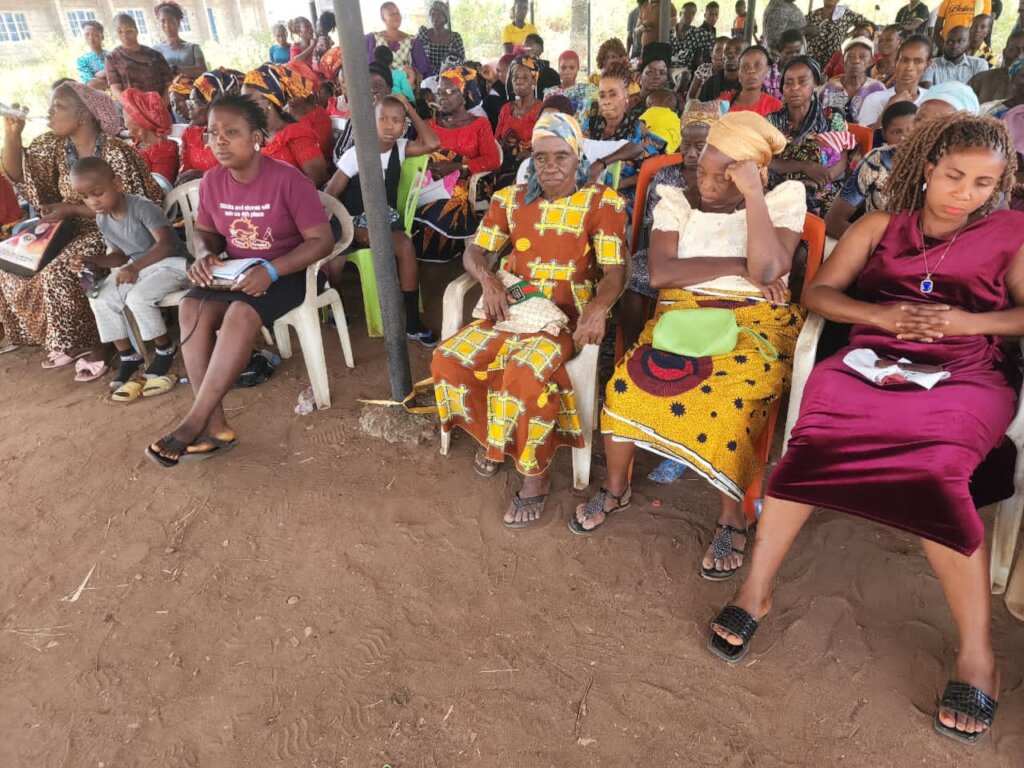By Douglas Okoro
A lawyer and gender rights activist, Mrs Eunice Onuabuchi, has asserted that Nigerian law provided equal rights of inheritance of parents’ properties to both male and female children.
The lawyer spoke in an interview with the News Agency of Nigeria (NAN) on Monday in Abakaliki.
She called for urgent action to leverage existing laws to dismantle the long-standing cultural practices in most Nigerian communities that denied the girl child the right to inherit their parents’ property.
In South East Nigeria, girls and women face a complex interplay of cultural norms, socioeconomic challenges, and human rights issues.
While the region is known for its vibrant culture and strong community ties, some traditional practices like female genital mutilation and limited inheritance rights for women persist.
Onuabuchi lamented the sustained silence around the issue in spite of subsisting laws and legal pronouncements outlawing such practices.
She cited a recent case involving four daughters who were forcefully ejected from their late father’s home because he had no male children describing the act as “ugly, discriminatory and unconstitutional.”
According to the legal practitioner, the girls; young, unemployed and scared, were forced into early unprepared marriages, simply to secure shelter and avoid social disgrace.
“For too long, our culture has kept silent on this injustice; it is time we rise and challenge a status quo that denies daughters their rightful inheritance using our laws.
“A man in Abakaliki had four daughters and no sons, after he died and his wife also died, their daughters were left alone in the family home.
“Their uncles, exploiting patriarchal customs, issued them a quit notice and threw them out.
“However, a legal dispute later erupted between the uncles over who should inherit the property.
At the hearing of the case at a High Court in Ebonyi, the judge shifted focus from the uncles’ claims to the deceased’s actual heirs.
“The judge asked a fundamental question: Who owned the property originally?
“When it was established that the man left behind four daughters, the court ordered they be joined in the case as interested parties even though some had already fled out of fear and frustration.
“At the end of the trial, the court ruled that neither of the uncles had a rightful claim and declared the four daughters the legal heirs to the property.
“The court relied on Supreme Court precedents which affirm that female children have equal rights to inheritance.
“It was a landmark judgment celebrated across Ebonyi as a victory for justice and women’s rights,” Onuabuchi told NAN.
The activist pointed out that across Igboland, women were routinely excluded from inheriting family property based on traditional stereotypes and male-preference customs.
The lawyer emphasised that the case was symbolic, representing more than just one family’s story.
“It exposed the deeply rooted gender bias in cultural inheritance practices and how they are used as weapons to rob women of their rights.”
She regretted that many women remained unaware of their legal rights and continued to suffer abuse and disinheritance in silence.
“There are laws protecting women’s inheritance rights; taking legal action not only changes one’s life but can set a precedent that benefits others,” she added.
She stressed that Nigerian law was evolving and customary laws that discriminated against women were now being invalidated by the courts.
“Section 42 of the 1999 Constitution (as amended) guarantees freedom from discrimination.
“The Supreme Court’s ruling in Ukeje v. Ukeje confirmed that female children cannot be excluded from inheritance simply because of their gender,” she said.
Onuabuchi urged women, legal practitioners and civil society organisations to speak out and help break the silence that sustained inequality.
“What happened to those girls still happens too often. Widows are told to vacate their homes, daughters are told they have no rights; but the law is on their side. It’s time we all stood up and say enough is enough.”(NAN)(www.nannews.ng)
Edited by Vivian Ihechu












